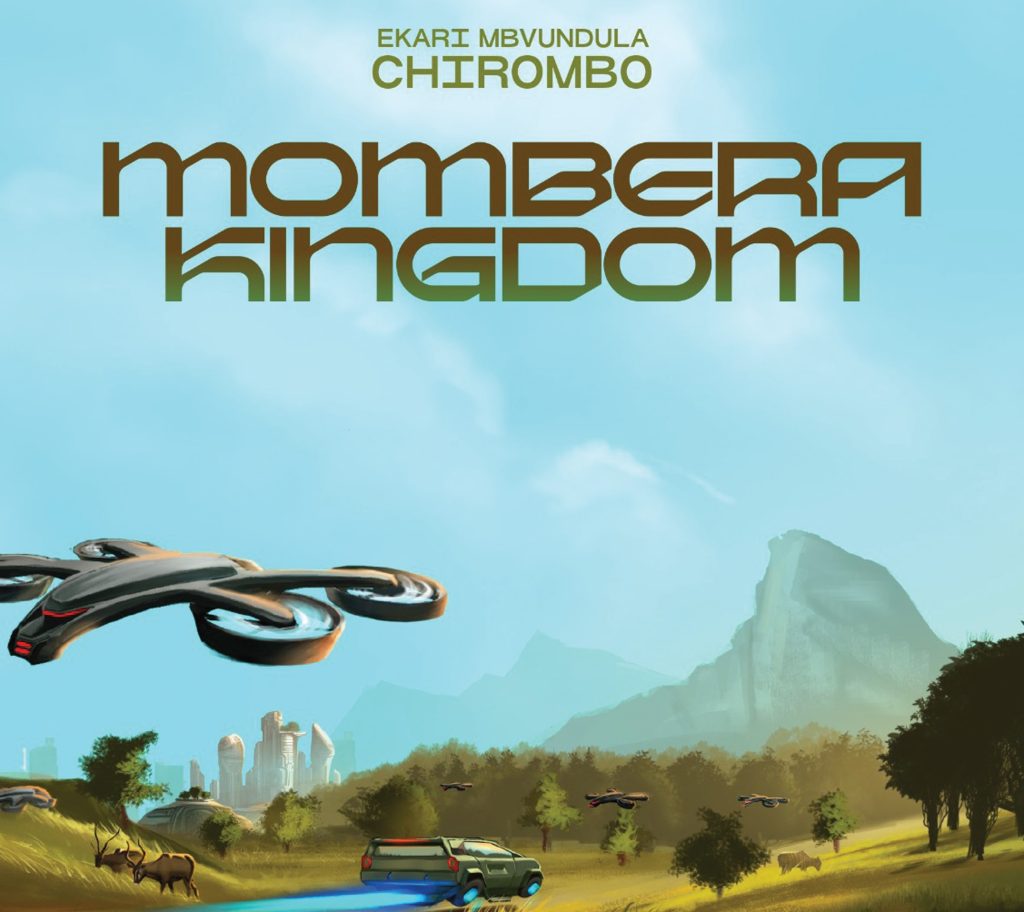Mombera’s rise to glory
Momberaland, a fictitious autonomous country in Mombera Rising Anthology: Ngoni Chronicles of Nature Futures from Malawi, encapsulates the tale of a phoenix that rose from its dead ashes to life.
The anthology comprises three short stories written by Muthi Nhlema and Ekari Mbvundula Chirombo. They are stories that depict a futuristic kingdom first called Mombera and later Mzimba, 100 years from now.

In 2054, the Ngoni renaissance begins following a public declaration by the Esangweni, the gathering of the eight elders, calling for a return to cultural values. Ngonis from the diaspora return home to Mzimba.
The idea of the need for the renaissance or a rebirth, is common in pan-Africanism ideologies. Former African leaders such as Thabo Mbeki of South Africa, Abdoulaye Wade of Senegal and Peter Mutharika of Malawi have at different times spoken of the need for African countries to rethink about their cultural values to rise to the future.
That is why just 10 years later when the story of Khanyisile takes place, Mzimba is transformed naturally. The short story Khanyisile depicts the land, whose hills were once bare due to deforestation, thriving with vegetation like a rain forest.
From the story, one reads: “The hills which shielded the village stood to the North, covered in grassy miombo woodland. When she was in her early adolescence, the eight elders called the Esangweni told of a time long ago, around 2020, when these hills were almost bare, and deforestation ran rampant.”
Through the protagonist Khanyisile, one sees that the renaissance brought about the desirable change needed to create a conducive habitat for people, animals, birds and every living being.
The kingdom continues to flourish under indigenous knowledge, the preservation of cultural values and adoption of technology.
When the great insurrection begins, Momberaland secedes from Malawi and declares itself an independent state.
After the secession, the stories show that freedom is essential for prosperity and progress.
In a story titled Hiraeth, it reads in part: “The past, the time before the insurrection, was their Egypt. And the Royal House of Mhlahlo, their Moses. And they were never going back. Never!”
To crown the accomplishment, after 20 years of woodlands restoration, the United Nations Environment Programme declares Momberaland a socialist eco-state, the first of its kind and the kingdom prospers through the use of technology.
“He could make out irrigation drones in the distance spraying water over the tilled fields that were visibly due for harvest,” reads part of a short story titled Mombera Kingdom.
For that reason, the anthology can be read through post-colonial and eco-criticism lenses.
Under post-colonial perspective, the stories depict that autonomy is crucial for Mombera to register progressive development. Thus, the stories show that the kingdom did not only break ties with Malawi but also in 2072 began its de-westernisation policy in which neoliberal capitalism is abolished, free elections discontinued and a gaian state religion called the Umvelo Creed, the brainchild of Inkosikazi Khanyisile, is established.
Most post-colonial theories have critised the wholesale adoption of western values at the expense of home-grown knowledge.
Through policies, such as assimilation as espoused by the French in their former West Africa colonies or the Portuguese in lusophone countries, Africans embraced policies and values that did little to uplift them from the dungeon of poverty and other ills.
Mombera Kingdom has spurned some of the western values and returned to local knowledge.
Scholar Achile Mbembe writes about the colonial commandment, saying African nations retained the colonial institutions such as the Judiciary, Parliament and the like.
Again, through eco-criticism perspective, the stories prescribe the essence of preserving nature.
“It was a hot December day in 2115 when Benjamin Orwell stepped out of the hovercraft and onto the grassy runway in the Mombera Kingdom. He pulled his hat low, prepared for billowing dust, but, surprisingly, there was none. Instead, there was a breeze that carried the damp scent of rain on its way, though the sky appeared clear and blue,” from Mombera Kingdom story.
Being a futuristic literary work, the authors have successfully used imagination to portray what the future will look like after preserving nature. The Greeks, who conceptualised rationality as a critical part of the mind, also recognised the power of imagination for it can help to bring inventions or innovations in science.
This is what the stories portray, that in a 100 years from now, it is possible to reverse the current environmental degradation through the rebirth of knowledge, culture and art.
Yet, for the authors to depict such an ideal or utopian world where people are living in harmony with nature, they might have been influenced by the biblical concept of the garden of Eden where the first couple is said to have lived in perfect harmony with nature as well.
This is the notion the anthology is depicting. In Mombera Kingdom short story, we read: “The soothing breeze rustling through the grass before encountering the leaves of the trees, a harmonious balance. The Caspian Tiger, extinct to the world, but thriving in the paddocks of Momberaland.”





